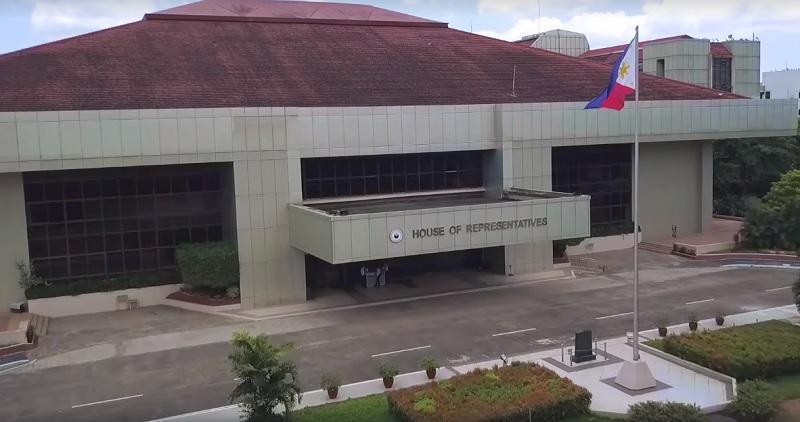House approves absolute divorce bill on final reading

The House of Representatives on Wednesday approved on final reading the proposed measure on absolute divorce.
A total of 131 lawmakers voted in favor of House Bill No. 9349, while 109 voted against it and 20 abstained, according to an update by House Secretary General Reginald Velasco on Thursday.
The earlier announced results were 126 affirmative, 109 negative and 20 abstention.
House Secretary General Reginald Velasco reports a change in the voting on the Divorce Bill.
— Tina PanganibanPerez (@tinapperez) May 23, 2024
131 AFFIRMATIVE VOTES;
109 NEGATIVE VOTES; &
20 ABSTENTIONS.
The earlier announced results was 126 in the affirmative, 109 in the negative and 20 abstention. @gmanews @gmanewsbreaking
No reason was given for the change.
“The rectification in the Records of the House will be done when Session resumes this July 2024,” Velasco said.
To be known as the “Absolute Divorce Act,” the proposed measure seeks to reinstitute divorce as an alternative mode for dissolution of broken or dysfunctional marriages.
READ: What's the difference between annulment, legal separation, and divorce?
If enacted into law, couples may file a petition for absolute divorce through the following grounds:
- Legal separation under Article 55 of the Family Code of the Philippines
- Annulment of marriage under Article 45 of the Family Code of the Philippines
- Separation of the spouses for at least five years at the time of the petition for absolute divorce is filed, and reconciliation is highly improbable.
- Psychological incapacity as provided in Article 36 of the Family Code of the Philippines
- Domestic or marital abuse to include acts under RA No. 9262 or the Anti-Violence Against Women and and Their Children Act of 2004
Also cited in the bill are physical violence or grossly abusive conduct directed against the petitioner, a common child or the child of the petitioner; physical violence or moral pressure to compel the petitioner to change religious or political affiliation; drug addiction or habitual alcoholism or chronic gambling; and homosexuality.
Iloilo 1st district Rep Janette Garin said, “A million yes!”
Gabriela Women’s Party Rep Arlene Brosas also voted yes, saying, “The divorce bill’s aim to restore divorce as a rights-based option, acknowledging that the right to enter into marriage includes the right to exit an irreparable one.”
On the other hand, Pampanga 2nd district Rep and former President Gloria Macapagal-Arroyo’s no vote drew applause from the gallery.
Cagayan de Oro 2nd district Rep Rufus Rodriguez voted a “resounding and strong no to the divorce bill!”
He said the bill was unconstitutional as it violated the section of the 1987 Constitution that provides “marriage as an inviolable social institution is the foundation of the family and shall be protected by the state.”
The bill’s author and sponsor Albay 1st district Rep Edcel Lagman said the bill would not allow for “quickie divorces.”
“To those who opposed the measure, I truly respect their differing views based on religious belief, fear of their bishops and pastors, following the preference of their constituents, apprehension of reprisals at the polls, it is a conjugal decision, and in order not to displease their respective spouses," Lagman said.
"I am happy to note that these objections do not go into the empirical and secular merits, constitutionality, and efficacy of the absolute divorce bill,” he added.
He added that starting tomorrow, he and other advocates would “begin our campaign in the Senate so that its counterpart measure which has long been ripe for plenary deliberation shall similarly be passed.”
The bill also recognizes the validity of foreign divorce decree secured by either the foreigner or Filipino spouse provided it is authenticated by the Philippine Consul in or to the foreign country where it was secured.
It also recognizes the dissolution of marriage by the proper matrimonial tribunal of the Roman Catholic Church or any other recognized religious sectors.
Further, the proposed measure provides a mandatory 60-day cooling-off period after the filling of a petition for absolute divorce as a final attempt for reconciliation between the concerned spouses.
The Catholic Bishops Conference of the Philippines has always been vocal about its opposition towards the controversial bill.
In 2021, CBCP-Episcopal Commission on the Laity chairman and Apostolic Vicariate of Taytay, Palawan Bishop Broderick Pabillo said the approval of a House committee on the said bill is alarming as lawmakers should promote strengthening of families.
Meanwhile, CBCP president and Lingayen-Dagupan Archbishop Socrates Villegas said in 2015 that a failed marriage is not an argument for divorce. —NB/KBK, GMA Integrated News




